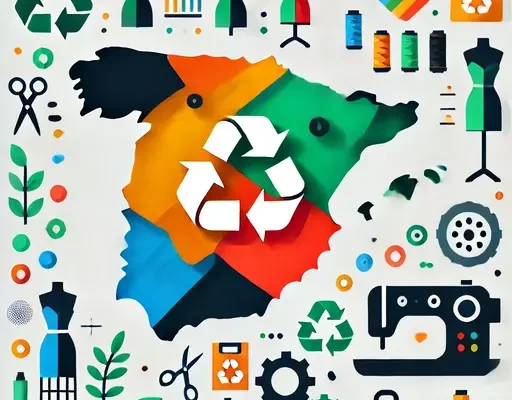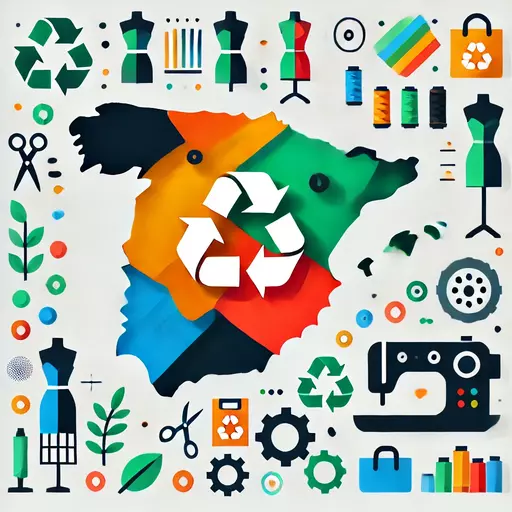

Fashion Sustainability: Spain's Circular Economy Strategy 2030
Spain is at the forefront of integrating sustainability into its national agenda, with the ambitious "España Circular 2030" leading the charge. This strategy is designed to transform Spain's economy into one that is more sustainable, efficient, and competitive, by embracing the principles of the circular economy.
The Spanish Circular Economy Strategy "España Circular 2030" sets a solid framework for reducing waste and enhancing resource efficiency across various sectors, including the fashion industry. The strategy lays the foundations for promoting a new model of production and consumption in which the value of products, materials, and resources are maintained in the economy for as long as possible, in which the generation of waste is reduced to a minimum, and the waste that cannot be avoided is used to the greatest extent possible.
Goals and Objectives:
- Reduce national material consumption by 30% relative to GDP by 2030, using 2010 as the baseline.
- Cut waste generation by 15% compared to 2010 levels.
- Achieve a 50% reduction in food waste per capita at the consumer and retail levels, and 20% reduction in production and supply chains by 2020.
- Increase the reuse and recycling of municipal waste to 10%.
- Improve water use efficiency by 10% and reduce greenhouse gas emissions significantly.
Impact on the Fashion Industry
"España Circular 2030" recognizes the fashion industry as a priority and calls on it to embrace sustainable practices, like creating clothes that are easy to recycle, employing eco-friendly materials, and minimizing overall impact on the planet. The strategy urges fashion industry stakeholders to redesign the textile production process, promoting the use of secondary raw materials and non-toxic substances to make garments more sustainable and durable.
Policy Support and Implementation
The strategy aligns with the European Union’s circular economy action plans and the Green Deal, providing a coordinated approach that includes fiscal policies, research and innovation, and consumer behavior to drive the transition towards a circular economy. Successive triennial action plans will detail specific measures to be implemented, ensuring that the transition is comprehensive and inclusive.
Why It Matters
"España Circular 2030" signals a shift toward greater environmental responsibility at a national level, while creating opportunities for economic resilience and technological innovation. By decreasing resource consumption and waste, the fashion industry can greatly reduce its environmental impact and cultivate a growing market for sustainable products and services.
This strategic approach reflects Spain's commitment to a sustainable future, promoting a circular economy that benefits both the environment and the economy. For stakeholders involved in the fashion industry, adapting to and supporting this transition will be key to achieving sustainability goals and remaining competitive in a rapidly evolving global market.

Image source: AI-generated
Policy source:

Με τη χρηματοδότηση της Ευρωπαϊκής Ένωσης. Οι απόψεις και οι γνώμες που διατυπώνονται εκφράζουν αποκλειστικά τις απόψεις των συντακτών και δεν αντιπροσωπεύουν κατ'ανάγκη τις απόψεις της Ευρωπαϊκής Ένωσης ή του Ευρωπαϊκού Εκτελεστικού Οργανισμού Εκπαίδευσης και Πολιτισμού (EACEA). Η Ευρωπαϊκή Ένωση και ο EACEA δεν μπορούν να θεωρηθούν υπεύθυνοι για τις εκφραζόμενες απόψεις.
